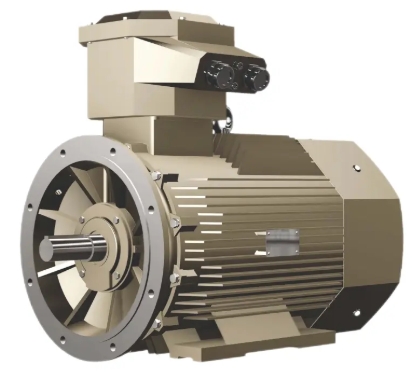Introduction
Squirrel cage three-phase induction motors are widely used electrical drive devices whose performance is influenced by various factors, with supply voltage being one of the most critical. This article will delve into the impact of supply voltage on the operation performance of squirrel cage three-phase induction motors and explore the underlying mechanisms.
The Effect of Supply Voltage Variations on Motor Performance
• Starting Torque: When the supply voltage decreases, the starting torque of the electric motor will significantly drop. This is because starting torque is proportional to the square of the voltage. When the voltage drops, the magnetic field generated by the motor weakens, leading to insufficient starting torque which may fail to overcome the load, causing the motor to either not start or have an extended startup time.
• Maximum Torque: Similar to starting torque, maximum torque is also proportional to the square of the voltage. When the voltage decreases, the maximum torque will also decrease, affecting the motor’s adaptability to load changes.
• Operating Current: When the supply voltage decreases, the motor needs to draw more current to produce the same torque. Excessive current can increase copper losses, leading to severe motor heating and even burning out.
• Efficiency: When the supply voltage decreases, the efficiency of the motor will decline. This is due to increased copper losses while the output power decreases, resulting in lower efficiency.
• Power Factor: The effect of supply voltage reduction on the power factor is relatively complex; generally, the power factor will slightly decrease.
• Speed: Under rated load, the impact of supply voltage reduction on speed is relatively small. However, under light or no-load conditions, a decrease in voltage may cause a slight increase in speed. The Impact of Voltage Fluctuations on Motors
• Short-Term Fluctuations: Short-term voltage fluctuations can lead to torque pulsation in the motor, affecting load stability. Severe fluctuations can cause the motor to overheat or mechanically vibrate.
• Long-Term Fluctuations: Long-term voltage fluctuations can accelerate the aging of motor insulation, shortening its lifespan. They can also affect the motor’s efficiency and power factor.
Summary
Supply voltage is a significant factor influencing the performance of squirrel cage three-phase induction motors. A decrease in voltage directly leads to reduced starting torque and maximum torque, increased operating current, and decreased efficiency. Voltage fluctuations can affect the stability, lifespan, and performance of the motor.
Precautions
• Voltage Stability: To ensure the normal operation of the motor, it is essential to maintain the stability of the supply voltage.
• Voltage Compensation: In situations with significant voltage fluctuations, consider using voltage stabilizers or variable frequency drives for voltage compensation.
• Motor Selection: When selecting a motor, choose one suitable for the load characteristics and power supply conditions, allowing for some margin.
• Regular Maintenance: Regularly inspect the insulation performance of the motor and replace aged components in a timely manner.
Post time: Nov-15-2024


